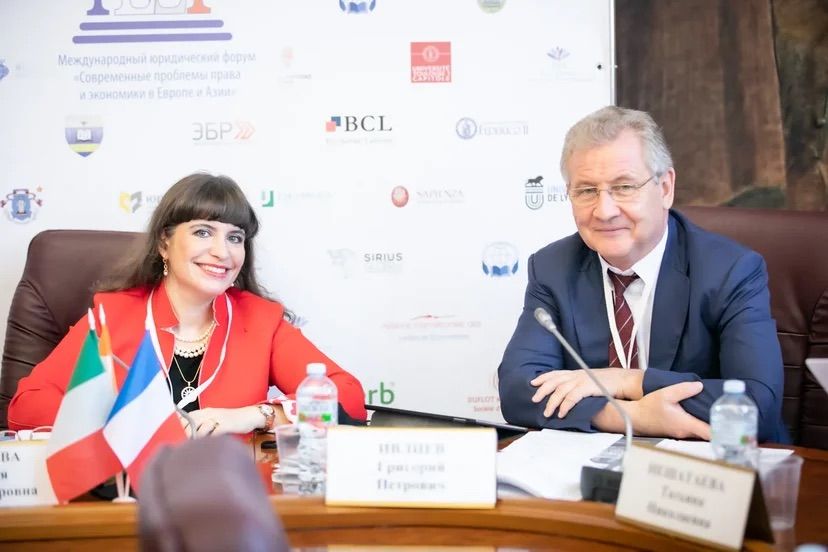
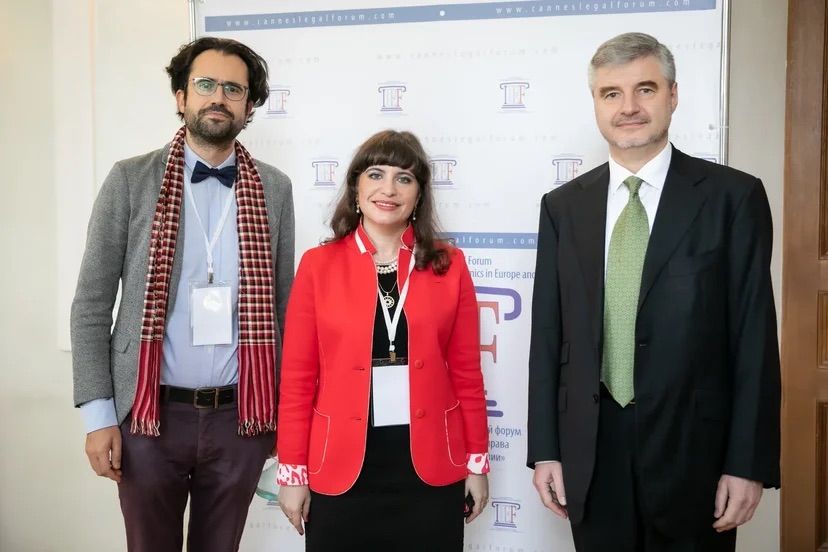
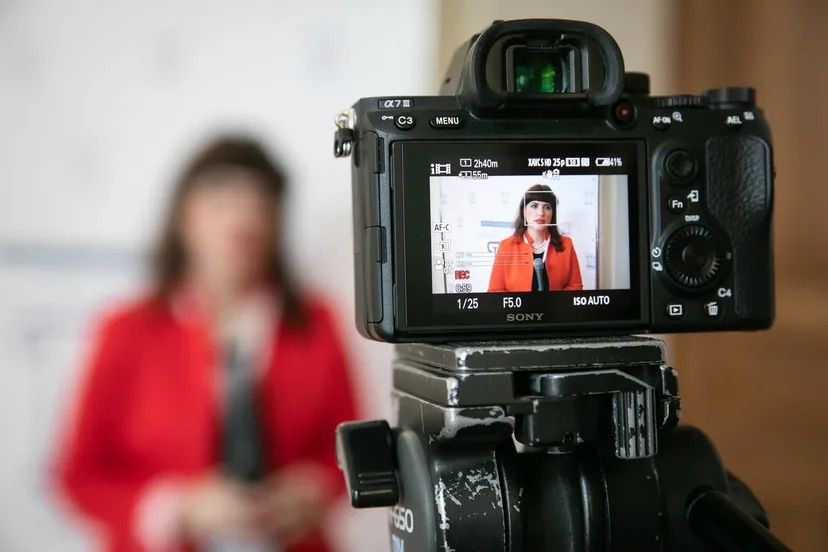
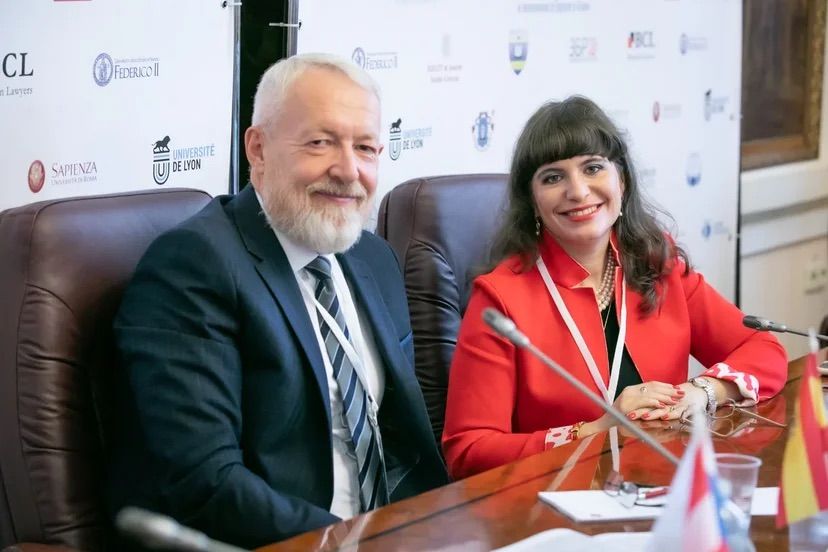
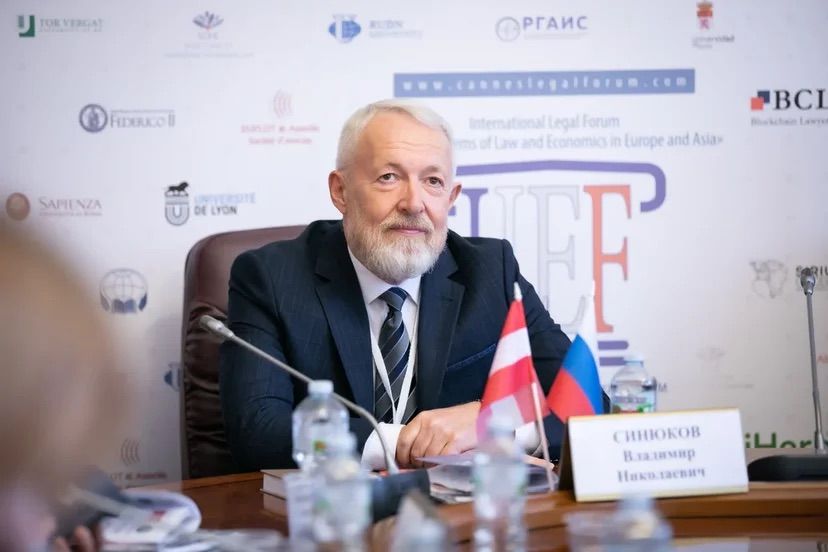
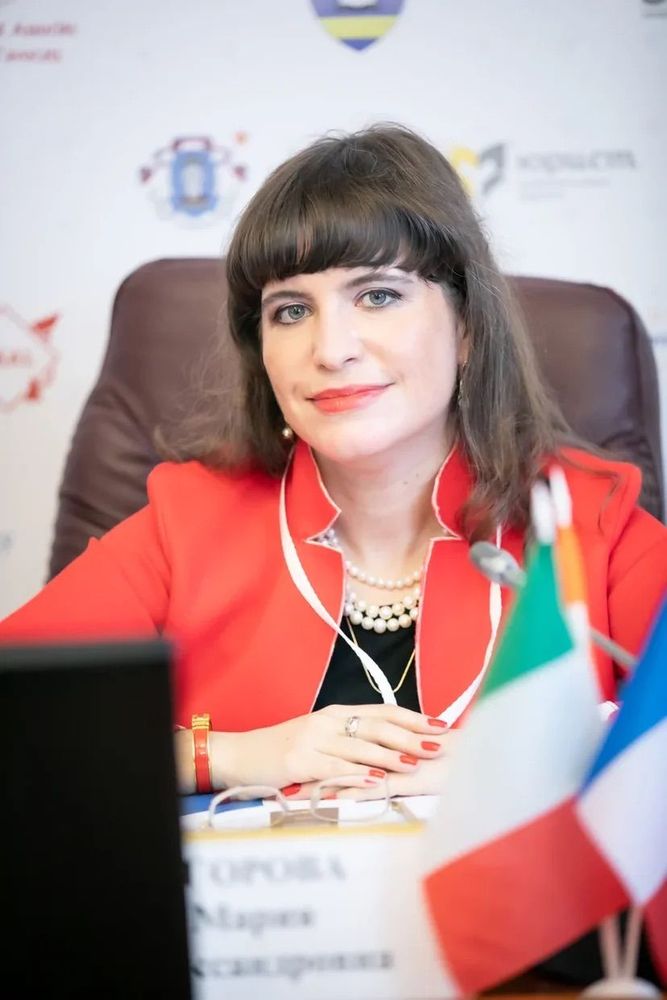
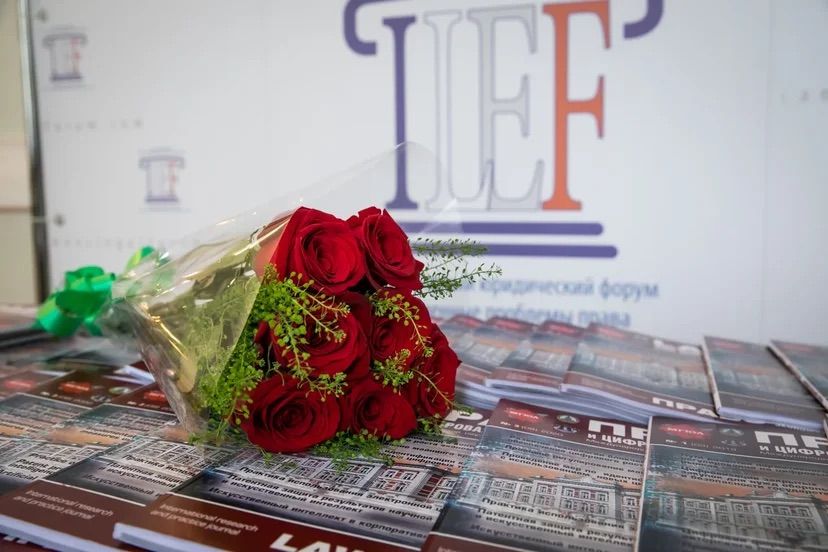
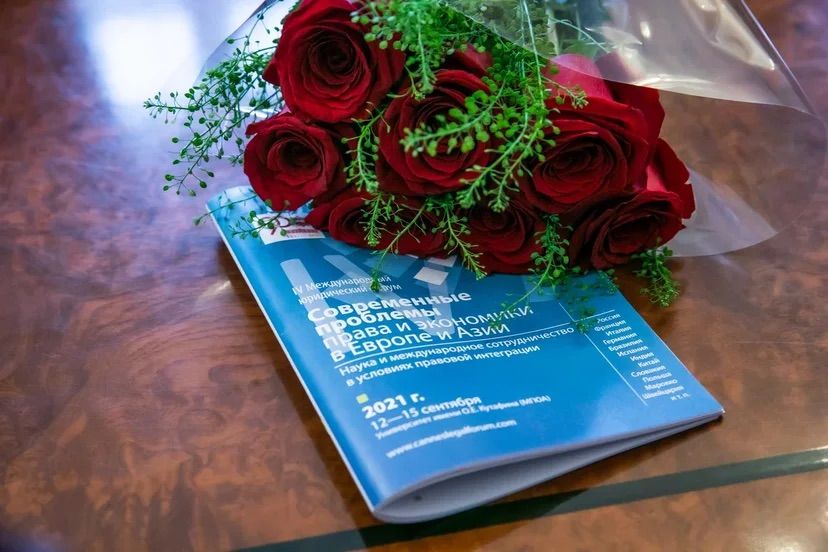
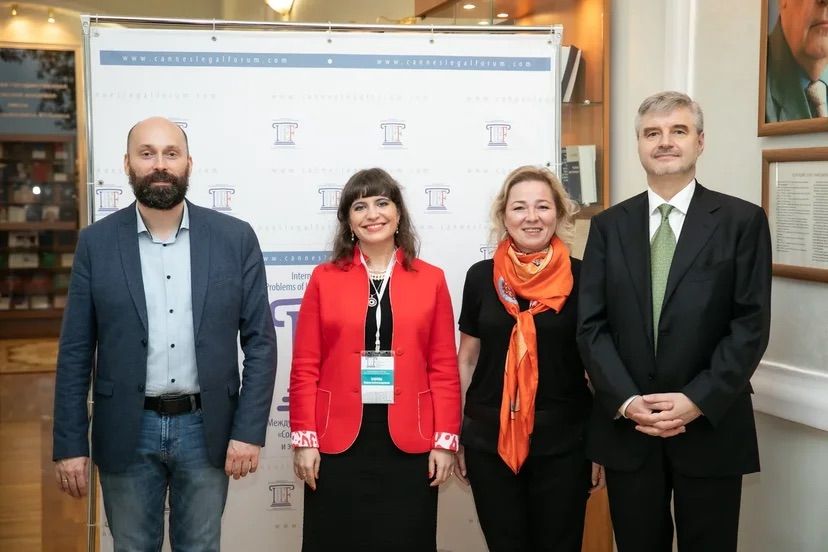
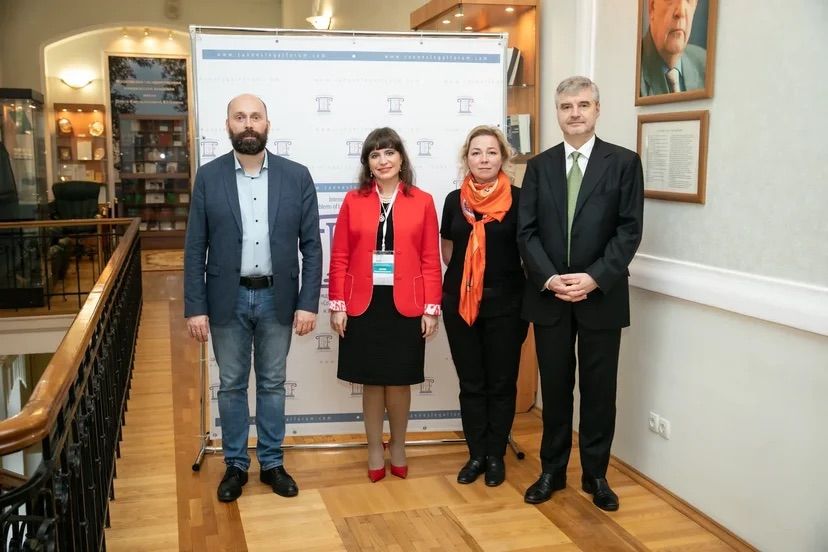
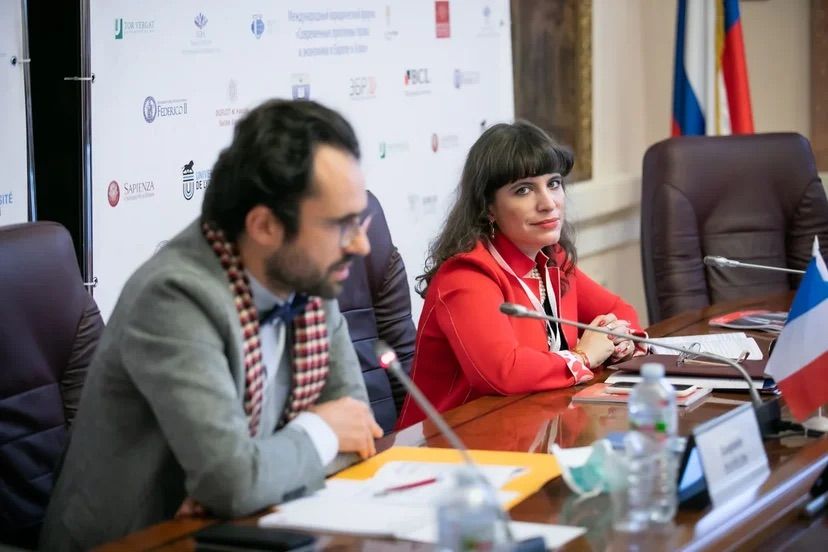
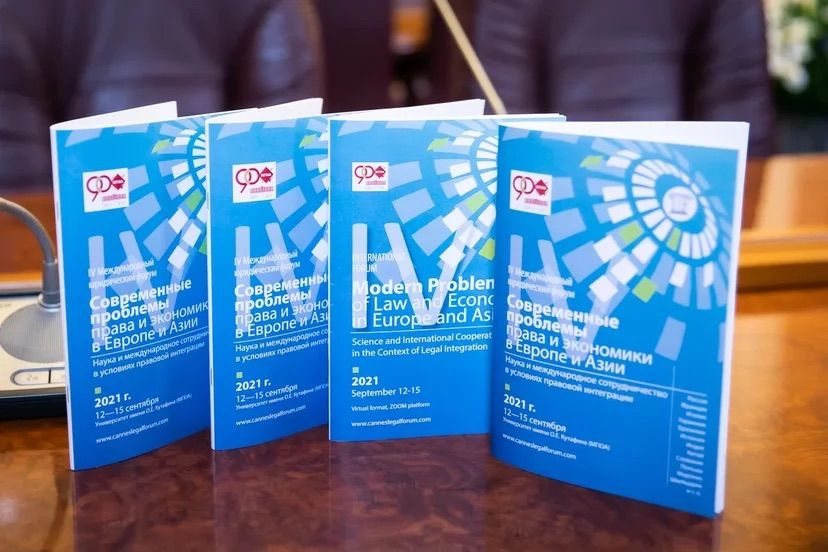
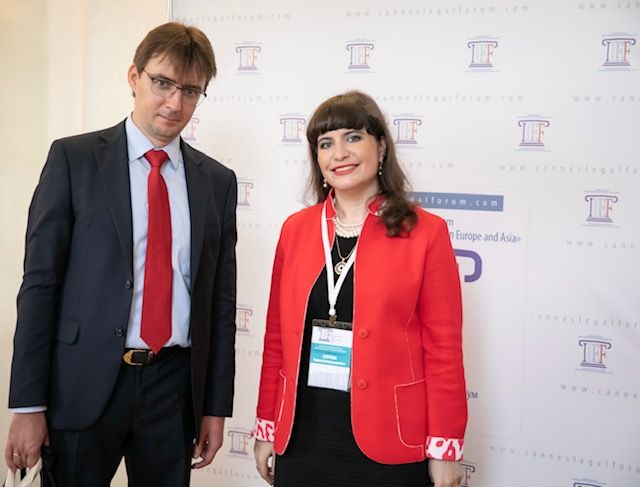
September 12, 2021
September 13, 2021
The modern global world is unstable, but the rule of law and economic stability are essential for the sustainable development of countries and international relations. Digitization has spread to all spheres of economy and society. Legislative activity and judicial practice are implemented with digital technologies. Global digitization as a challenge to law and economics from a perspective of discussion and development of new instruments based on the harmonization of law and economics which could create not barriers but a regulatory environment for sustained economic growth and stability.
Moderators
Viktor BLAZHEEV, Rector of Kutafin Moscow State Law University (MSAL), Chairman of the Russian Association of Lawyers, Co-President of the International Alliance of Lawyers and Economists (France), Honored Lawyer of the Russian Federation.
Maria EGOROVA, Doctor of Law, Professor, President of the Forum, Head of the International Cooperation Department of Kutafin Moscow State Law University (MSAL), Co-President of the International Alliance of Lawyers and Economists (France)
Welcoming addresses by the Forum organizers
Viktor BLAZHEEV, Rector of Kutafin Moscow State Law University (MSAL), Chairman of the Russian Association of Lawyers, Co-President of the International Alliance of Lawyers and Economists (France), Honored Lawyer of the Russian Federation.
Maria EGOROVA, Doctor of Law, Professor, President of the Forum, Head of the International Cooperation Department of Kutafin Moscow State Law University (MSAL), Co-President of the International Alliance of Lawyers and Economists (France)
Alain DUFLOT, Professor at Jean Moulin Lyon III University (France), Co-President of the International Alliance of Lawyers and Economists (France), Founder of Duflot&Partners Legal Practice (Lyon, France).
Stephan U. BREU, Doctor of Business Administration (DBA), Honorary Professor, Secretary General of the Swiss Centre for International Humanitarian Law (Zurich, Switzerland).
Welcoming addresses by the Forum partners
- Jim WALKER, professor, Vice-Rector for International Relations at University Lumière Lyon 2 (France)
Topics for discussion:
- The main priorities of the state legal policy in the face of new social and economic challenges;
- The rule of law in the context of sustainable development, new technologies and international relations;
- Digital technologies in legislative activity;
- Features of legal constraints impeding the development of the digital economy;
- Modern models of legal regulation of global climate change in the digital technologies development.
In the panel discussion, participants will discuss the legal nature of Eurasian integration processes in the context of changes in international law, intergovernmental relations in the area of financial, economic and commercial regulation of the single market as well as improvements in the legislation of the members of the Eurasian Economic Union (EEA).
Moderators:
- Grigoriy IVLIEV, Head of the Federal Service for Intellectual Property (Rospatent).
Topics for discussion:
- Eurasian integration and modern international law;
- New vectors for the legal regulation of public relations in the context of Eurasian integration;
- Integration offences and the unification of the criminal legislation of the EurAsEC countries;
- Legal issues in financial and economic regulation within the Eurasian Economic Union;
- Problems of legal regulation of currency integration within EurAsEC;
- Dispute settlement at WTO.
Russia, India and China are rapidly digitizing their economies. The experience of countries in the field of regulation of digital transformation, legislation in the sphere of digital rights is of scientific and practical interest. The globalization of the Russian, Indian and Chinese economies is not synchronous, and their geopolitical strategies are also contradictory.
Moderators:
- Aleksandr ALEKSEENKO, PhD in Law, Associate Professor of the Vladivostok State University of Economics and Service (Russia).
- Pavel TROSCHINSKY, PhD in Law, Leading Researcher at Institute of Far Eastern Studies of the Russian Academy of Sciences (IFES RAS) (Russia).
- Maria TSAREVA, PhD in law, Associate Professor, Director of the Institute of Legal Translation of Kutafin Moscow State Law University (MSAL) (Russia).
- Singh PRABHPREET, Doctor of Law, Assistant Professor at School of Law of Manipal University Jaipur (India).
Topics for discussion:
- China’s legal diplomacy program and its geopolitical implications;
- Legal regulation of the Indian and Chinese information space in the light of digitization and globalization;
- Approaches to the development of legal instruments and legislative initiatives in China and India on digital infrastructure and artificial intelligence technologies.
- Digital China’s dominance: global problem or globalization problem?
The diplomatic relations of Russia and France have a long history and established traditions. At the present time, political and legal dialogue is taking place in difficult circumstances but the problems of jurisdiction are very similar, including the commonality of the Russian and French legal models. The panel discussion will cover factors and conditions for the development of branches of law in France and Russia, and in general trends in legal science, harmonization of legislation in the field of digital rights and information technologies, selected civil issues, commercial, criminal.
Moderators:
- Maria EGOROVA, Doctor of Law, Professor, President of the Forum, Head of the International Cooperation Department of Kutafin Moscow State Law University (MSAL), Co-President of the International Alliance of Lawyers and Economists (France)
- Benjamin DANLOS, Justice Attaché at the French Embassy in Russia (France)
- Alain DUFLOT, Professor at Jean Moulin Lyon III University (France), Co-President of the International Alliance of Lawyers and Economists (France), Founder of Duflot&Partners Legal Practice (Lyon, France).
Topics for discussion:
- Integrative foundations in the development of the legal science of Russia and France;
- Integration of Russian and French legislation in the context of globalization;
- Diplomatic relations between Russia and France as a basis for effective legal integration;
- Comparative analysis of the development of digital law in France and Russia;
- Comparative aspects of Russian and French criminal law;
- International legal cooperation in civil and commercial matters.
The use of technical means alternative to paper signing of cross-border commercial transactions, on the one hand, accelerates and simplifies cross-border circulation, on the other hand, it reveals a number of legal obstacles standing in the way of the recognition of such transactions in foreign jurisdictions. In order to increase the legal certainty and predictability of the recognition of such transactions, it is necessary to carry out work at the international level to unify and harmonize the regulation of cross-border trade turnover in a digital environment. One of the main problems of electronic cross-border trade is the legal recognition of transactions with identification data, the creation of an identification data management system, the development of uniform requirements for the identification of a person, the security and confidentiality of information transmitted via the Internet.
Moderators:
- Vladimir KANASHEVSKY, Doctor of Law, Professor, Head of the Private International Law Department of Kutafin Moscow State Law University (MSAL).
- Gabriella MARCELJA, President of International NGO SIRIUS GLOBAL — Academic Diplomacy 4.0, Director of Startup Grind, representative of Cleantech clusters in Italy and Croatia.
- Olesia ZASEMKOVA, PhD in Law, Associate Professor of the Private International Law Department of Kutafin Moscow State Law University (MSAL).
- Marco MONTANARINI, Vice-President of the Russian-Asian Legal Association, lawyer (Italy).
Topics for discussion:
- Conclusion of cross-border transactions on online platforms.
- Electronic cross-border business transactions.
- Judicial jurisdiction to resolve disputes arising from cross-border electronic trade.
- Systems for managing identity and trust services.
- Recognition of foreign electronic signatures.
September 14, 2021
Ensuring the information security of the state, society and business is a priority direction for legal regulation in the context of globalization. The triad of public relations in the field of information security also gives rise to a series of issues to be discussed. The panel discussion will be devoted to international cooperation in combating criminal money-laundering and countering the financing of terrorism, as well as the legal regulation of digital governance, digital economy and personal data protection.
Moderators:
- Alexei MINBALEEV, Doctor of Law, Associate Professor, Head of the Information Law and Digital Technologies Department of Kutafin Moscow State Law University (MSAL), an expert of the Russian Academy of Sciences.
- Vladimir BELYKH, Doctor of Law, Professor, Head of the Business Law Department of the Ural State Law University, Honored Scientist of the Russian Federation.
- Olga BELYAEVA, Doctor of Law, Chief Researcher, Head of the Private Law Disciplines Department of Institute of Legislation and Comparative Law under the Government of the Russian Federation, Professor of the Russian Academy of Sciences.
Topics for discussion:
- International challenges on anti-money laundering and countering the financing of terrorism - KYC and AML systems;
- Digitalization of the authorities, e-government and digital profile of the citizen;
- Russian and foreign experience of transformation of personal data protection legislation in the digital era;
- Problems of digital market power and its role for financial services in digital development.
Integration processes affect the transformation of criminal law while the importance of the national criminal law remains high. Globalization and integration demonstrated the expansion of national borders, legal integration and intercountry interaction in criminal law. The participants will discuss the basis and conditions for the implementation of a special procedure for judicial proceedings, current problems of prosecutorial activity and international legal cooperation in criminal proceedings. Among the new issues are liability for the crimes with the use of electronic payment systems and virtual traces in the detection of crimes.
Moderators:
- Igor ZVECHAROVSKY, Doctor of Law, Professor, Head of the Criminal Law Department of Kutafin Moscow State Law University (MSAL).
- Nikolay STOYKO, Doctor of Law, Professor of Saint Petersburg State University.
- Mario ANTINUCCI, Criminal Lawyer in Rome, Professor of Criminal Procedure at the Faculty of Legal, Philosophical and Economic Studies at Sapienza University of Rome (Italy).
Topics for discussion:
- The integrative role of criminal law;
- International legal cooperation in a criminal proceeding;
- Improvement of the methodology for detecting crimes in the context of the digitization of social relations;
- Procuratorial supervision of the implementation of the law in the digital economy;
- International experience and Russian practice in the transformation of procuratorial bodies.
The discussion will include a consideration of legal integration in the European Union, the improvement of European law, the problem of contradiction and mutual influence of the national legal systems of the EU Member States and the formation of a separate EU legal system. Lawyers and economists will examine the European bankruptcy law and procedural issues of cross-border bankruptcy in the face of global challenges.
Moderators:
- Sergey KASHKIN, Doctor of Law, Professor, Head of the Integration and European Law Department of Kutafin Moscow State Law University (MSAL), Honored Lawyer of the Russian Federation.
- Olga MESHCHERYAKOVA, Doctor of Law, Associate Professor, Professor of the Peoples' Friendship University of Russia (RUDN).
- Stephan U. BREU, Doctor of Business Administration (DBA), Honorary Professor, Secretary General of the Swiss Centre for International Humanitarian Law (Zurich, Switzerland).
Topics for discussion:
- National legal integration in the European Union;
- Problems of development of autonomous EU legal system;
- Prospects for creation of European Prosecution Office;
- Cross-border bankruptcy law: EU practice in the context of global challenges and pandemic;
- Problems of harmonization of European and Russian legislation.
In the panel discussion, participants will observe current theoretical, methodological and applied issues of comparative law. Comparativeness has a considerable arsenal of instruments and methods for studying modern legal systems, not least the development of comparative legal thinking. The normative integration of States is taking place against the backdrop of changing legal practices in the new digital environment, which calls for active discussion
Moderators:
Vladimir SINYUKOV, Doctor of Law, Vice-Rector for Research of Kutafin Moscow State Law University (MSAL), Professor of the Theory of State and Law Department, Honored Scientist of the Russian Federation.
Maria EGOROVA, Doctor of Law, Professor, President of the Forum, Head of the International Cooperation Department of Kutafin Moscow State Law University (MSAL), Co-President of the International Alliance of Lawyers and Economists (France)
Topics for discussion:
- Development of legal systems in the modern world;
- Doctrinal problems of comparative law.
- Transformation of foreign legal doctrines and practice in the information society.
- Development of comparative legal thinking and methodology.
Historical evolutionary trends and global new changes: synchronization in comparative law of the ХXI century.
Panel discussion 9. “Law of Genomic Research: Global, Regional and Domestic Regulation - Theory and Practice”
Genomic research requires the development of new directions of legal regulation, as well as the improvement of the existing international, regional and domestic legal regulation. The rapid development of genetic technologies all over the world makes the problems of ensuring biosafety, assessing the legal risks of using the achievements of genomics in various fields of economic activity, and protecting human rights urgent. The participants will discuss the current state and development trends of the genomic research legal regulation in Russia and foreign countries and the improvement of the international legal framework for the use of genomic technologies.
Moderators:
- Lyudmila BERG, Doctor of Law, Professor of the Theory of State and Law Department, Head of the Research Laboratory for the Legal Support of Safe Use of Genetic and Genomic Information of Ural State Law University.
- Daria PONOMAREVA, PhD in Law, Deputy Head of the Practical Law Department of Kutafin Moscow State Law University (MSAL).
- Tatyana ASTRELINA, Doctor of Medicine, Associate Professor, Head of the Center for Biomedical and Additive Technologies, Head of the Department of Regenerative Medicine, Hematology, Molecular Cytogenetics with the course of Pediatrics of the Russian State Research Center − Burnasyan Federal Medical Biophysical Center of Federal Medical Biological Agency of Russia.
Topics for discussion:
- Implementation of international standards for the protection of civil rights and freedoms;
- Balance of national interests and constitutional changes in the protection of the rights and freedoms of citizens in modern Russia;
- Harmonization of the principles of legal integration and state sovereignty in the development of justice institutions;
- Experience of Integrative Justice within the European Union;
- Problems of establishing of EurAsEC judicial system;
- Development and improvement of the Russian judicial system under conditions of legal integration.
Genomic research requires the development of new directions of legal regulation, as well as the improvement of the existing international, regional and domestic legal regulation. The rapid development of genetic technologies all over the world makes the problems of ensuring biosafety, assessing the legal risks of using the achievements of genomics in various fields of economic activity, and protecting human rights urgent. The participants will discuss the current state and development trends of the genomic research legal regulation in Russia and foreign countries and the improvement of the international legal framework for the use of genomic technologies.
Moderators:
- Lyudmila BERG, Doctor of Law, Professor of the Theory of State and Law Department, Head of the Research Laboratory for the Legal Support of Safe Use of Genetic and Genomic Information of Ural State Law University.
- Daria PONOMAREVA, PhD in Law, Deputy Head of the Practical Law Department of Kutafin Moscow State Law University (MSAL).
- Tatyana ASTRELINA, Doctor of Medicine, Associate Professor, Head of the Center for Biomedical and Additive Technologies, Head of the Department of Regenerative Medicine, Hematology, Molecular Cytogenetics with the course of Pediatrics of the Russian State Research Center − Burnasyan Federal Medical Biophysical Center of Federal Medical Biological Agency of Russia.
Topics for discussion:
- Implementation of international standards for the protection of civil rights and freedoms;
- Balance of national interests and constitutional changes in the protection of the rights and freedoms of citizens in modern Russia;
- Harmonization of the principles of legal integration and state sovereignty in the development of justice institutions;
- Experience of Integrative Justice within the European Union;
- Problems of establishing of EurAsEC judicial system;
- Development and improvement of the Russian judicial system under conditions of legal integration.
September 15, 2021
Financial and corporate law is undergoing significant changes. The particular relevance of these branches of law stems from the impact of the COVID-19 pandemic. The timing and conduct of meetings, disclosure, reporting and internal audit have changed. The role of financial law has been strengthened, and digital financial assets have been defined by law. Many countries are actively discussing the introduction of national digital currencies (Digital Currencies of Central Banks), including Russia. The identified aspects and problems will be discussed in a panel discussion in the context of legal integration, Russian and foreign experience in the development of financial and corporate legislation.
Moderators:
- Lana ARZUMANOVA, Professor of the Financial Law Department of the Kutafin Moscow State Law University (MSAL), Doctor of Law
- Alexander SITNIK, Associate Professor of the Financial Law Department of the Kutafin Moscow State Law University (MSAL), PhD in Law
Topics for discussion:
- Legal regulation of national digital currencies;
- European Experience in Company Law and Corporate Regulation;
- Impact of the globalization of the world economy on international financial law and the development of financial markets;
- Digital financial assets;
- International integration in the protection of intellectual property rights.
The event will include a discussion of the current problems of civil procedure in various countries. The starting point for an accurate discussion will be the sources of civil procedural law, the role of doctrine and jurisprudence in the regulation of procedural relations. In foreign countries, the most sought-after method of dispute settlement is mediation. In general, ADR methods are widely used, with positive experiences in many countries around the world, and interesting from a restorative justice perspective. The panel discussion will discuss features and challenges of simplified production, as well as new collective (group) claims for the civil process.
Moderators:
- Sergei MIKHAILOV, Head of the Civil and Administrative Procedure Department of the Kutafin Moscow State Law University (MSAL), Associate Professor, PhD in Law
- Jarosław Jerzy Turłukowski, Director of the Center of Eastern Europe and Central Asia Study, Assistant Professor of the Commercial Law Department of Faculty of Law and Administration at University of Warsaw (Poland).
Topics for discussion:
- Sources of Civil Procedure Law;
- Summary Proceedings;
- Collective (group) claims;
- The influence of ADR (alternative dispute resolution) methods on the legal regulation of civil procedure
Nowadays the banking system is dynamic. The introduction of financial technologies, innovations in financial markets, their globalization and the blurring of borders form important prerequisites for the improvement of banking legislation and convergence in banking law. The nature of the credit institution is changing, which makes the discussion of private law matters relevant. The coronavirus pandemic has exacerbated the problem of bank dismantling, fraud and, in this context, the prevention of banking offences should be discussed.
Moderators:
- Lyudmila EFIMOVA, Doctor of Law, Professor, Head of the Banking Law Department of Kutafin Moscow State Law University (MSAL).
- Raffaele LENER, Doctor of Law, Professor of Commercial Law and Financial Markets Law in the Department of Law at Tor Vergata University of Rome (Italy).
- Irina MIKHEEVA, PhD in Law, Deputy Head of the Banking Law Department of Kutafin Moscow State Law University (MSAL).
Topics for discussion:
- Legal integration and harmonization of Banking law;
- World experience in the development of Banking law in the digital economy;
- Trends in Public law regulation of Banking in Russia and abroad;
- Problems of Private Banking law and regulation of banking-client relations;
- Troubled Banks Law, Liquidation and Reorganization.
Russia, Italy and Spain cooperate fruitfully in the legal sphere and have a rich legacy of mutual legal assistance. The legal systems of Italy and Spain are among the oldest in the world and are interesting in comparing of constitutional and legal doctrines. Panelists will consider current legislative developments in Italy and Spain and present experience in the regulation of financial and economic relations, investment and trade.
Moderators:
- Marcello D'APONTE, Professor of Labor Law at University of Naples Federico II, Labor Law Lawyer in Naples, Rome and Milan, Doctor of Law (Italy)
- Roberto FERNANDEZ-FERNANDEZ, Professor of Labour Law and Social Security Law of the University of Leon, Doctor of Law (Spain)
- Elia Antonietta RAFFAELA, Advisor on International Legal Affairs and Compliance with Human Rights Standards, Professor at the University of Santiago de Compostela, PhD in Law
Topics for discussion:
- International legal cooperation between the Russia, Italy and Spain in the context of the internationalization of law and legislation;
- Constitutional law doctrines of Italy and Spain;
- Current problems in the development of the legal science in Italy and Spain;
- Impact of socio-economic challenges on the improvement of Italian and Spanish legislation;
- Legal integration of Italy and Spain within the European Union;
- Legal regulation of Russian-Spanish and Russian-Italian economic relations.
Environmental Business Safety is a relatively new area of legal regulation. Sustainable development is a global trend and, with legal integration, the protection of environmental rights takes on an international legal dimension. A great deal of experience has been gained in the development of environmental legislation in the EU, the OECD, which needs to be studied and adapted to Russian legislative conditions.
Moderators:
- Marco Ricceri, Secretary General of Institute for Political, Economic and Social Studies (EURISPES)
- Olga SEROVA, Vice-Rector for Academic Affairs of the Pskov State University, Doctor of Law, Professor
- Natalia ZHAVORONKOVA, Head of the Environmental and Natural Resources Law Department of the Kutafin Moscow State Law University (MSAL), Doctor of Law
- Yuri SHPAKOVSKY, Professor of the Environmental and Natural Resources Law Department of the Kutafin Moscow State Law University (MSAL), Doctor of Law
Topics for discussion:
- Global, national and integrative aspects of the legal regulation of environmental safety;
- Current trends in international environmental law;
- Administrative and judicial protection of environmental rights as a global trend towards achieving sustainable development goals;
- Liability in international environmental law and prevention of transboundary damage to the environment;
- Trends in environmental legislation in OECD countries.
